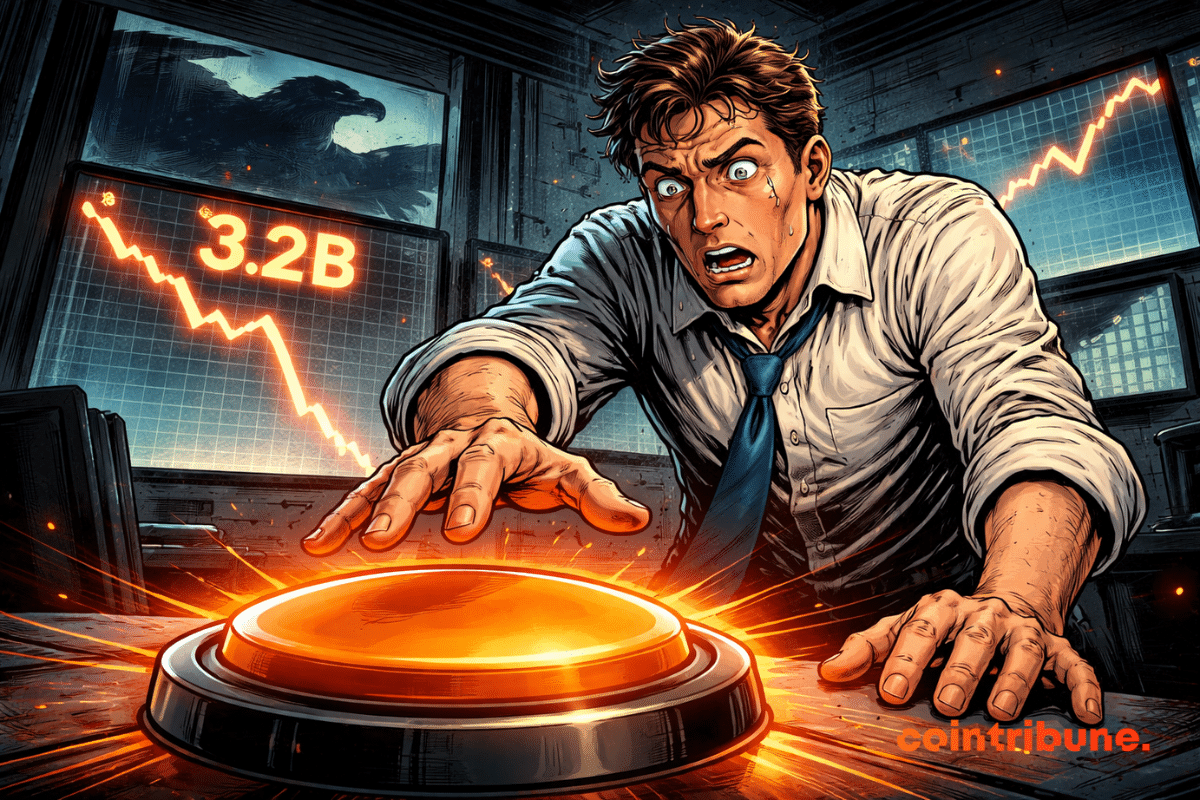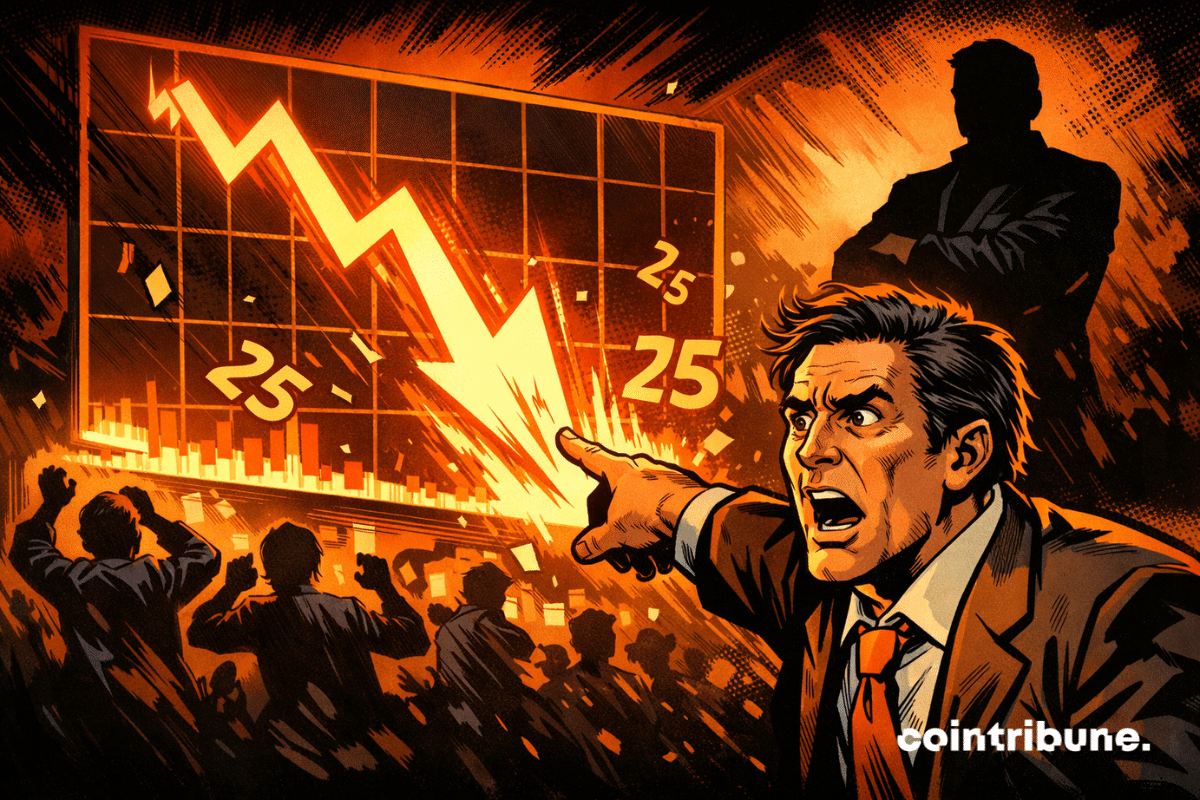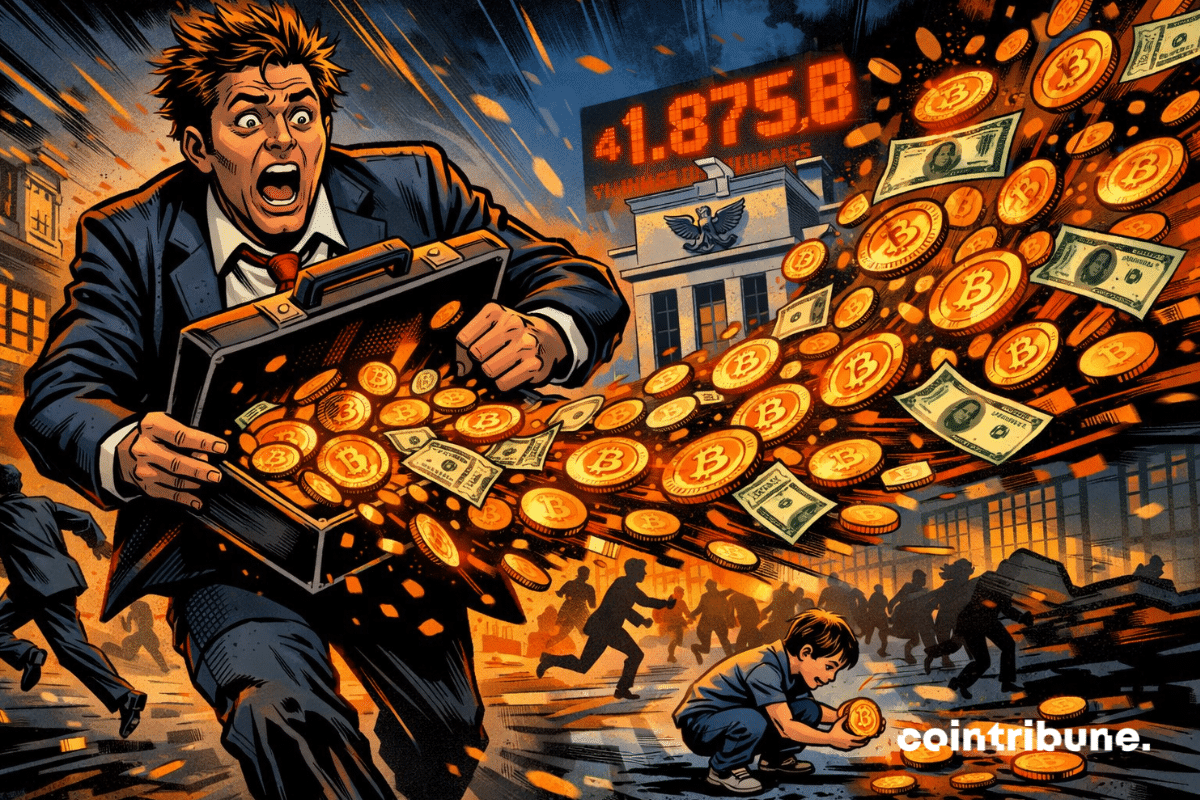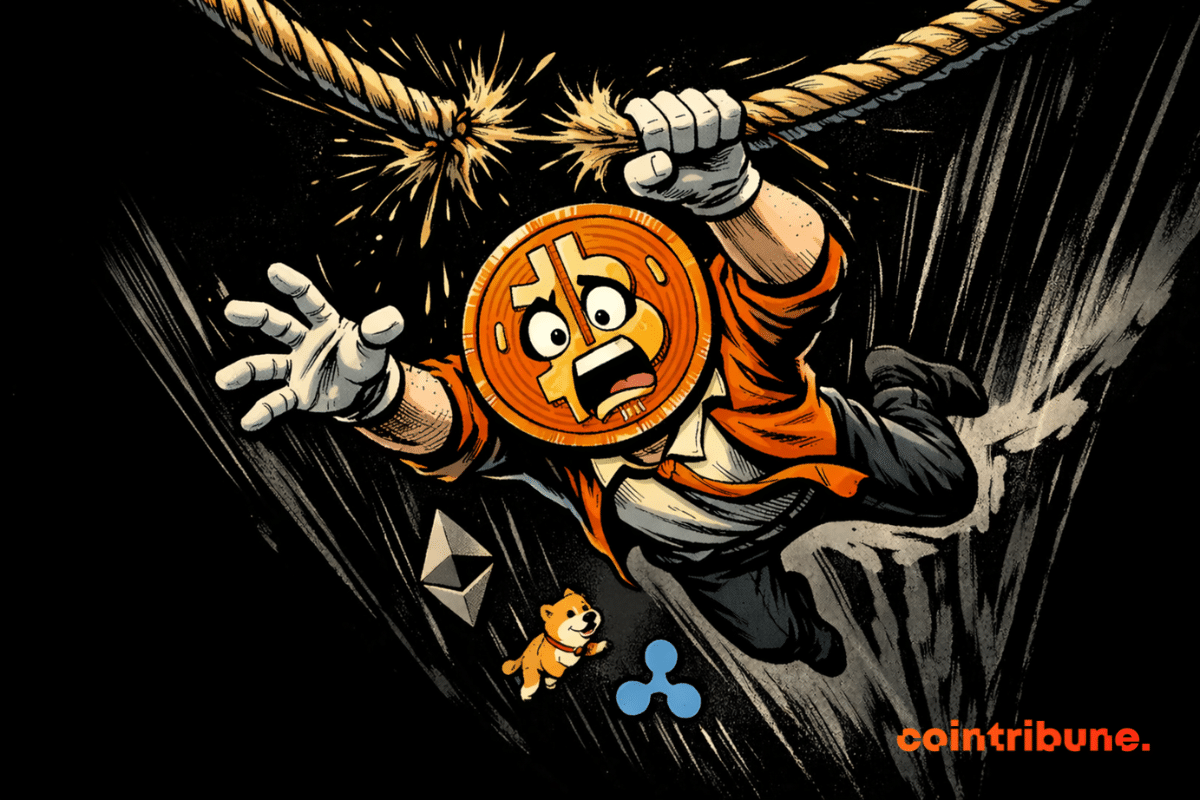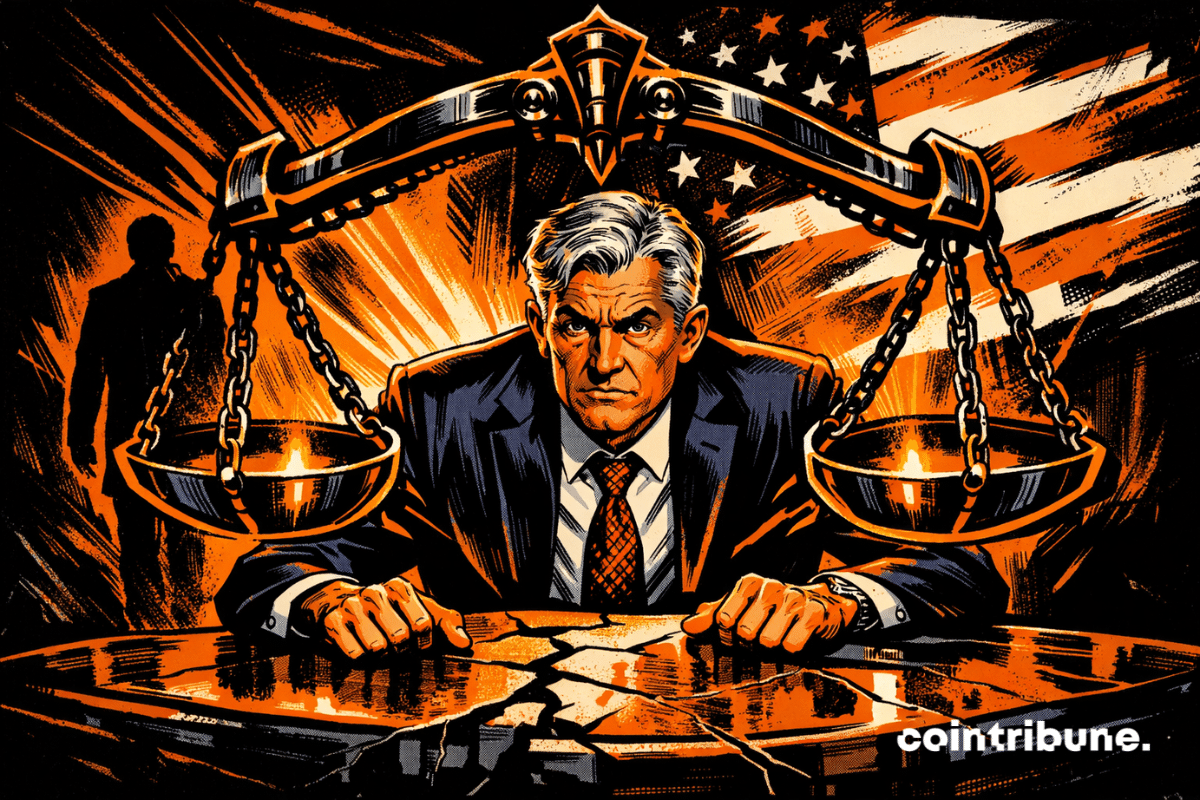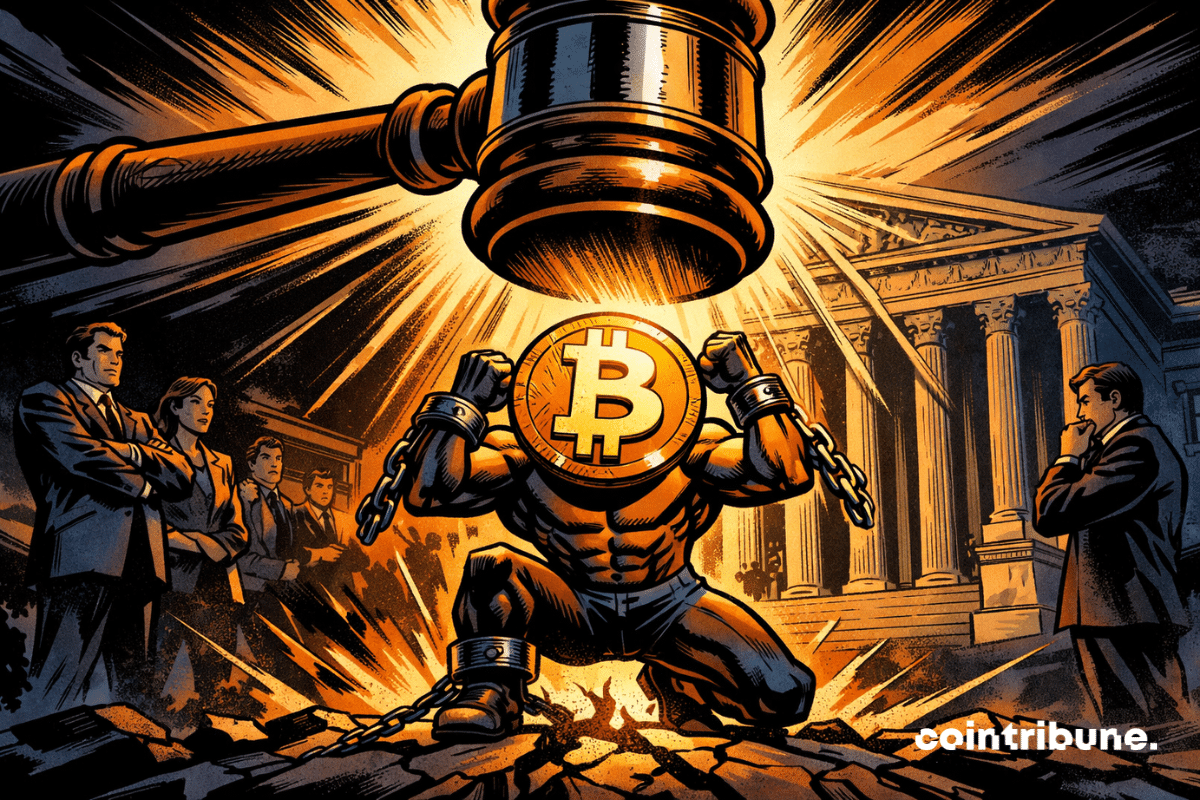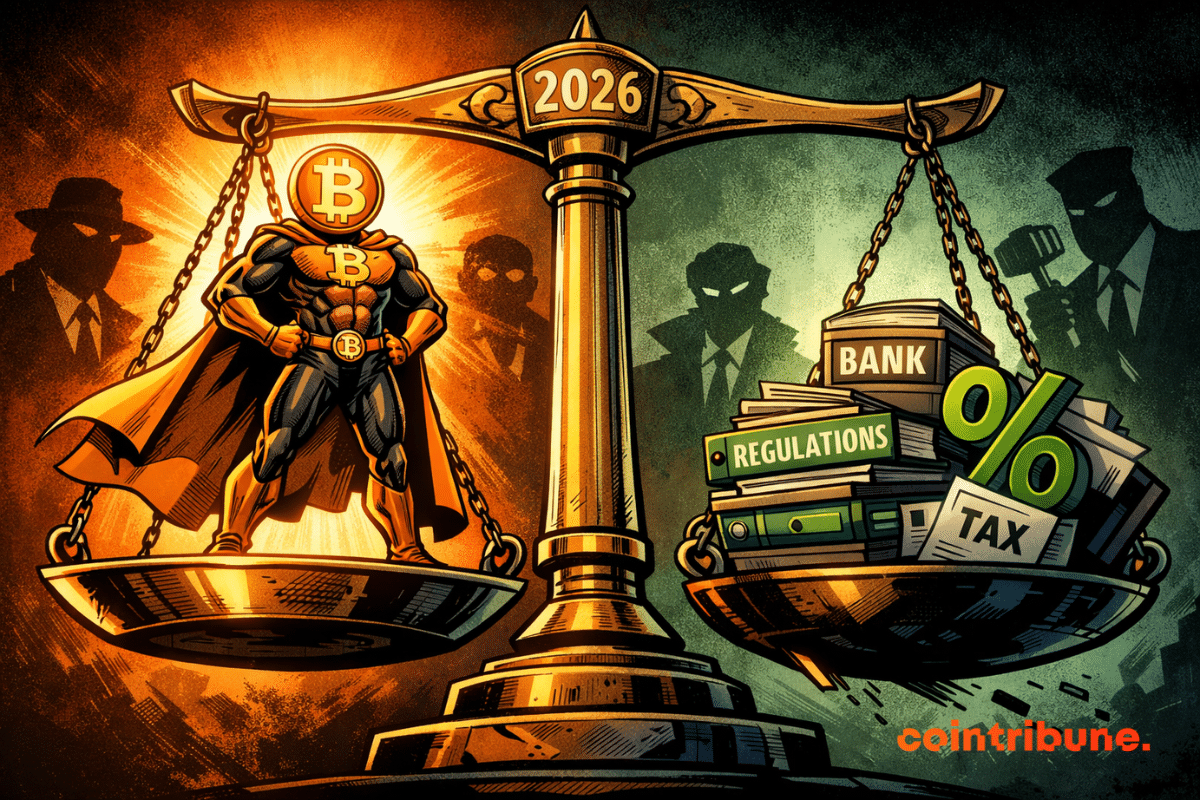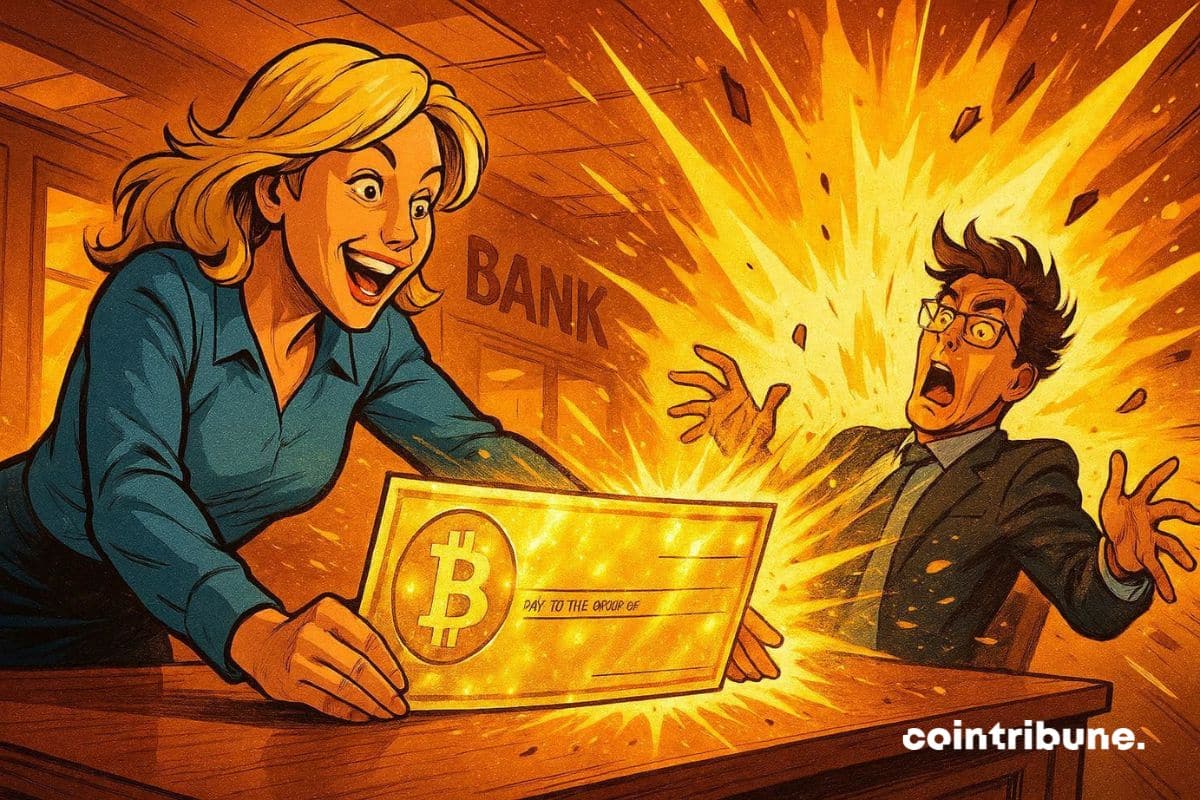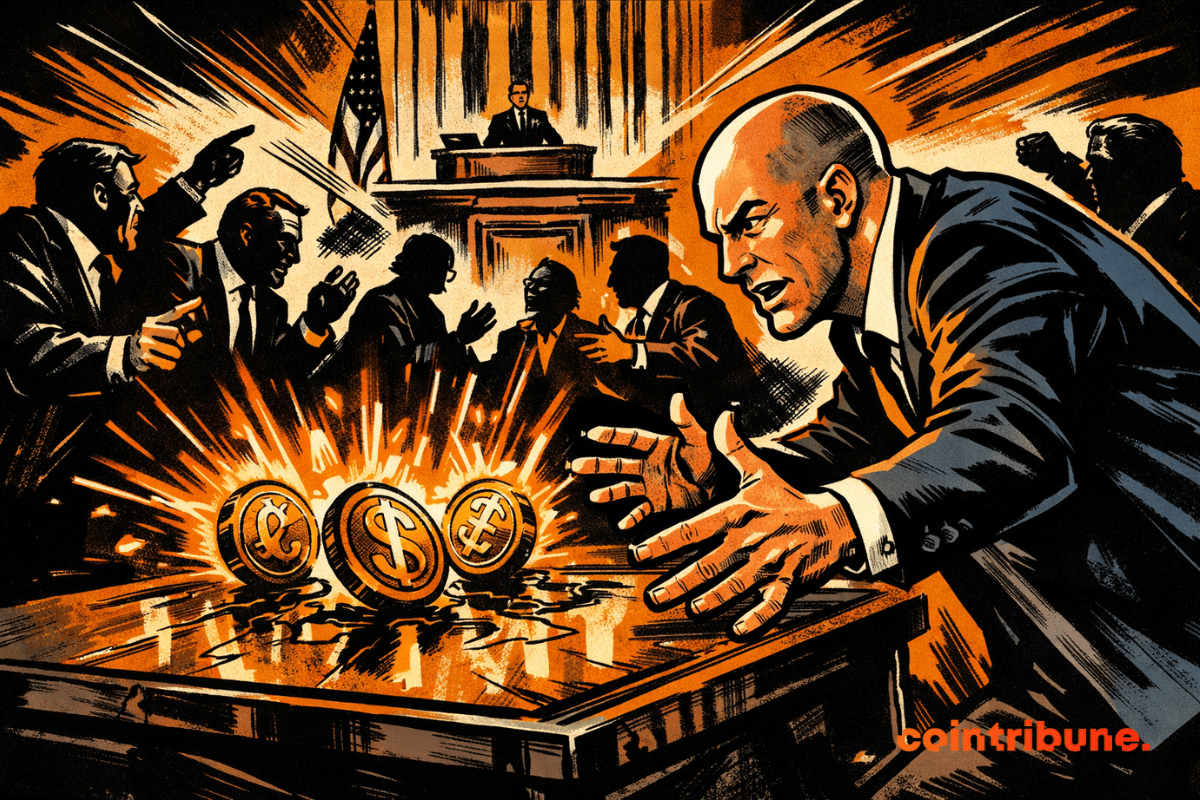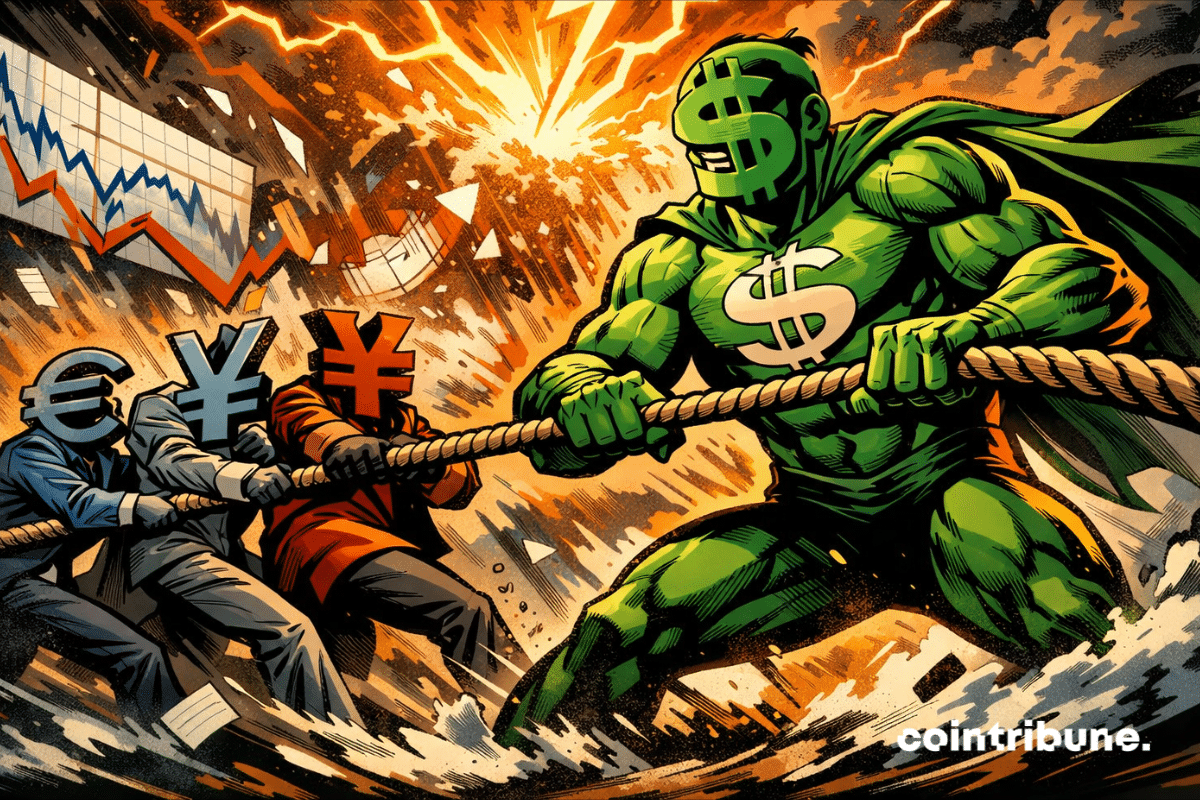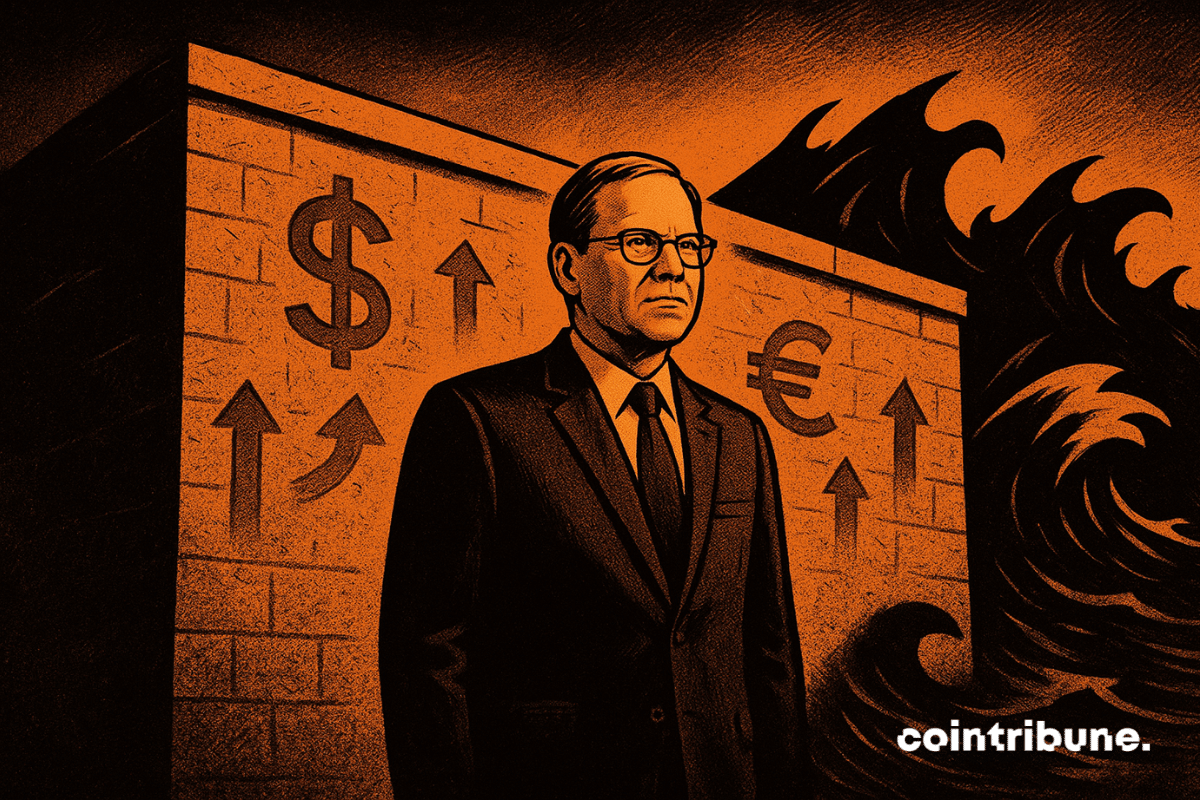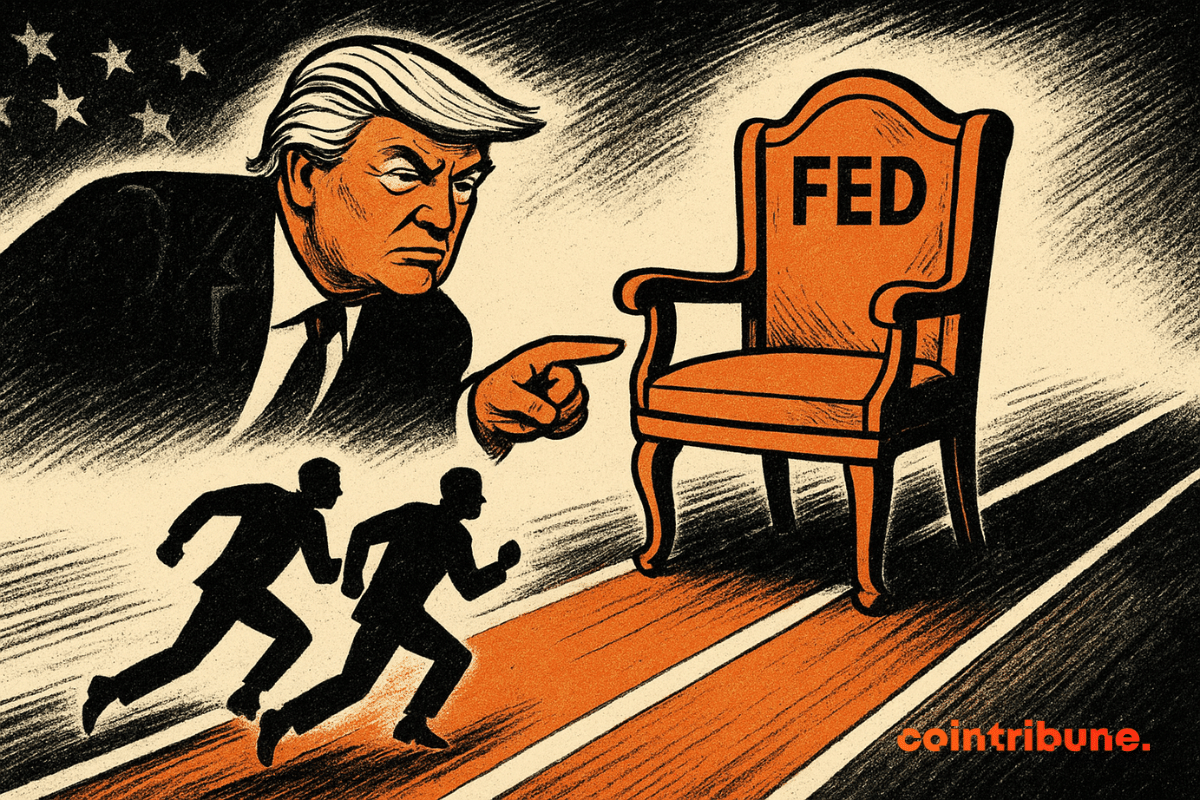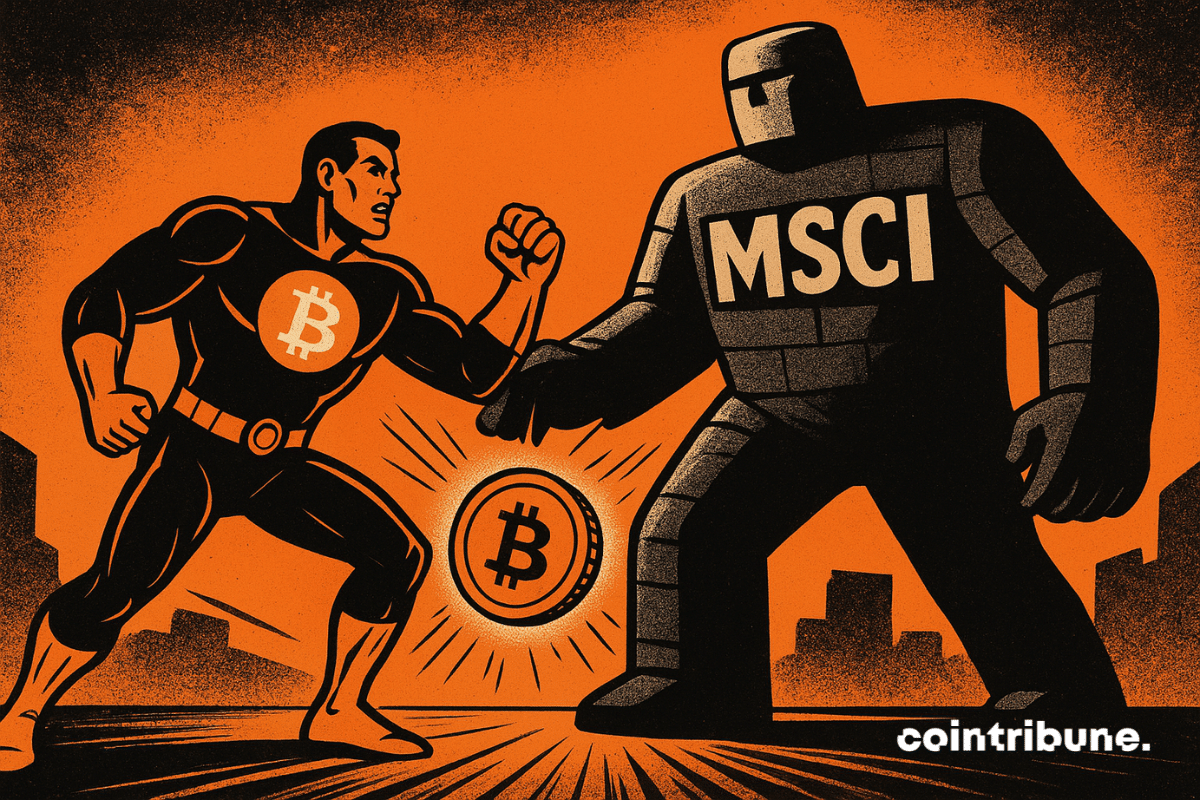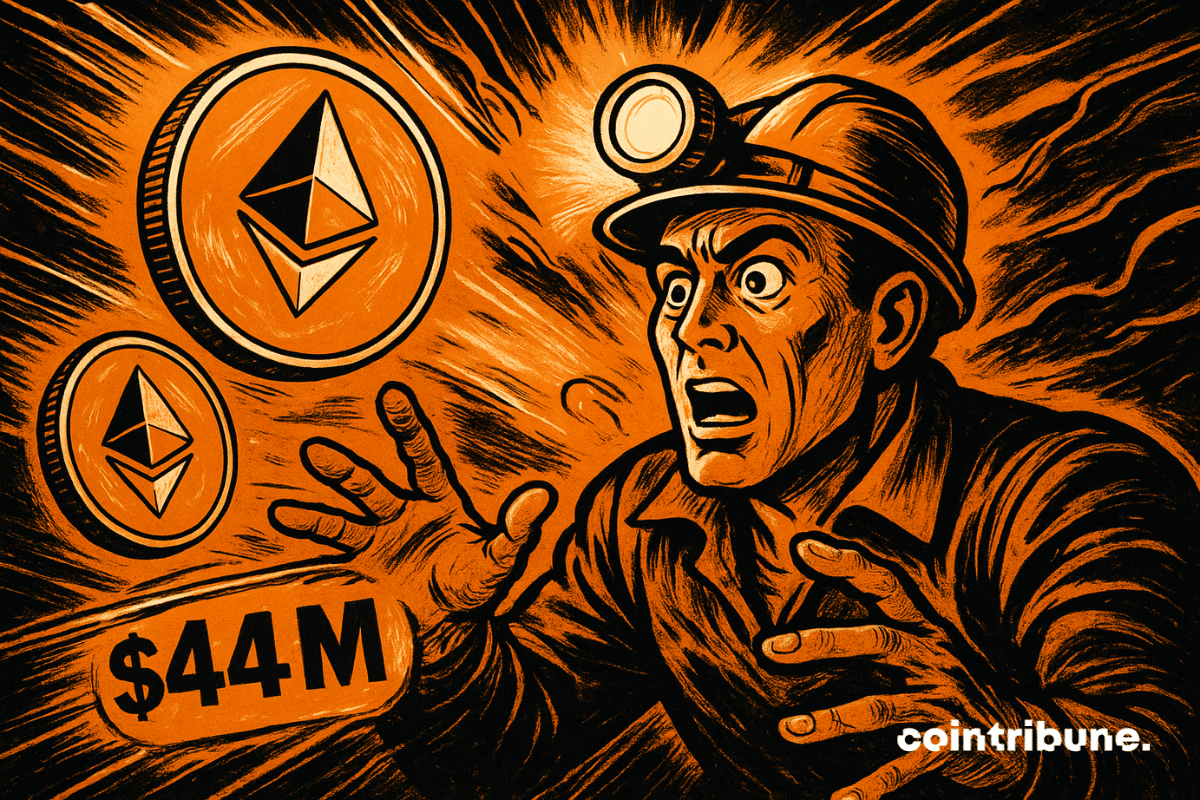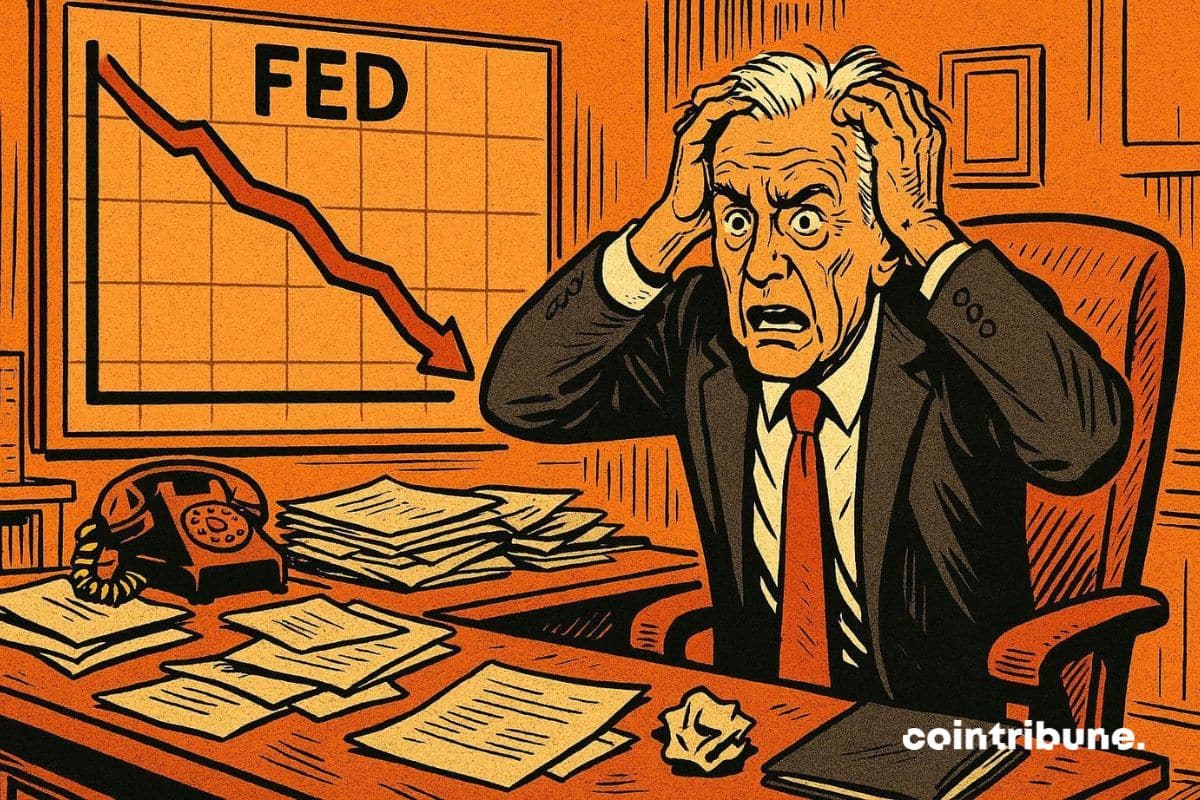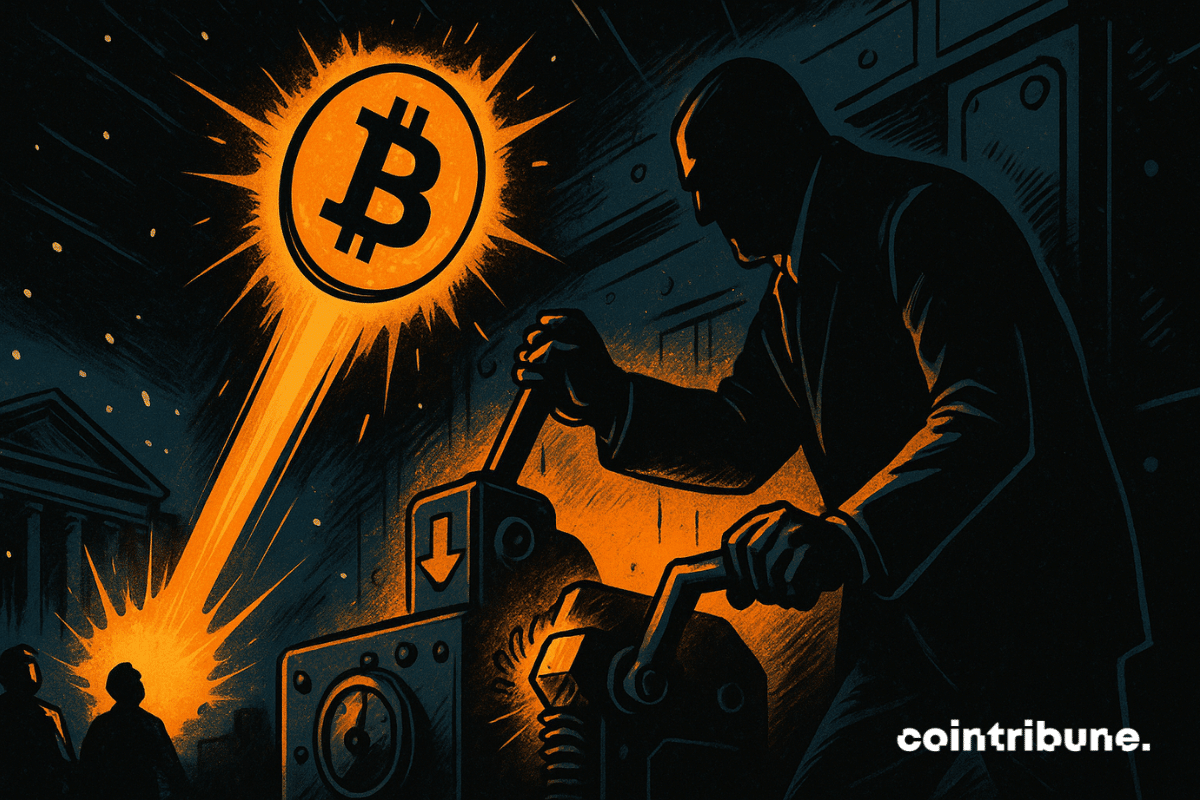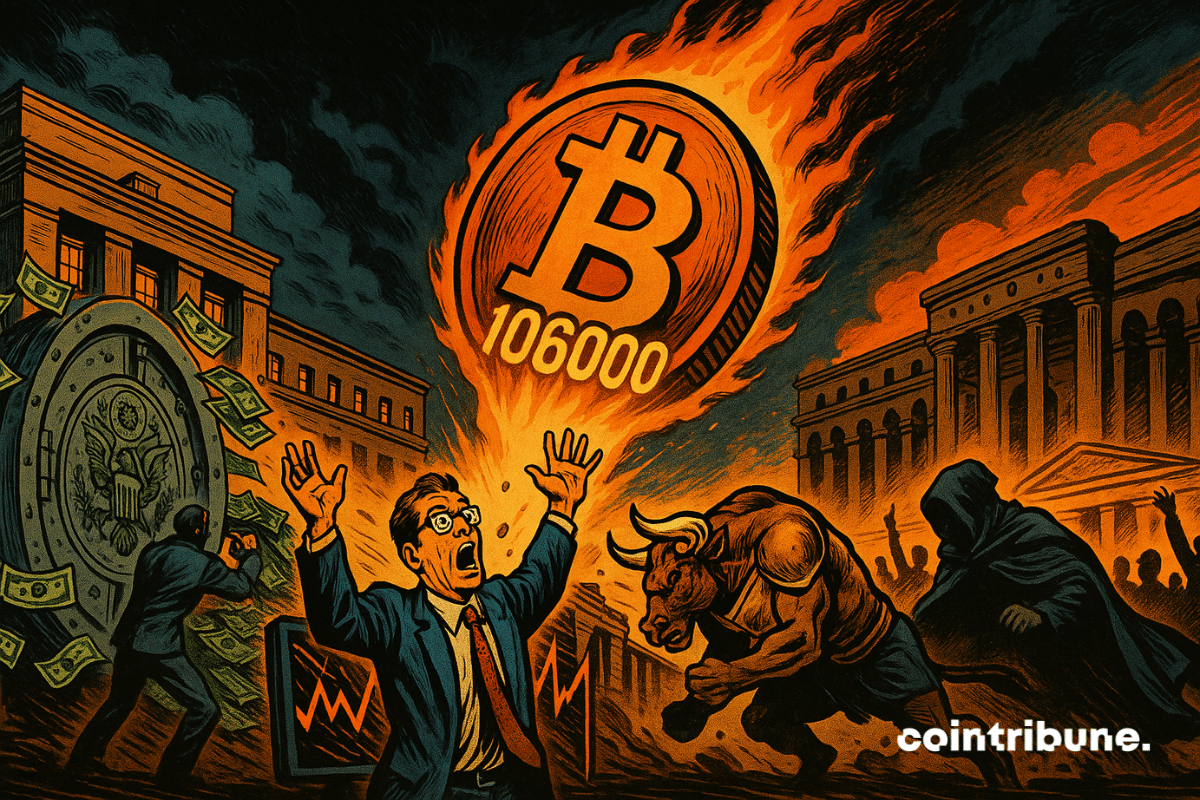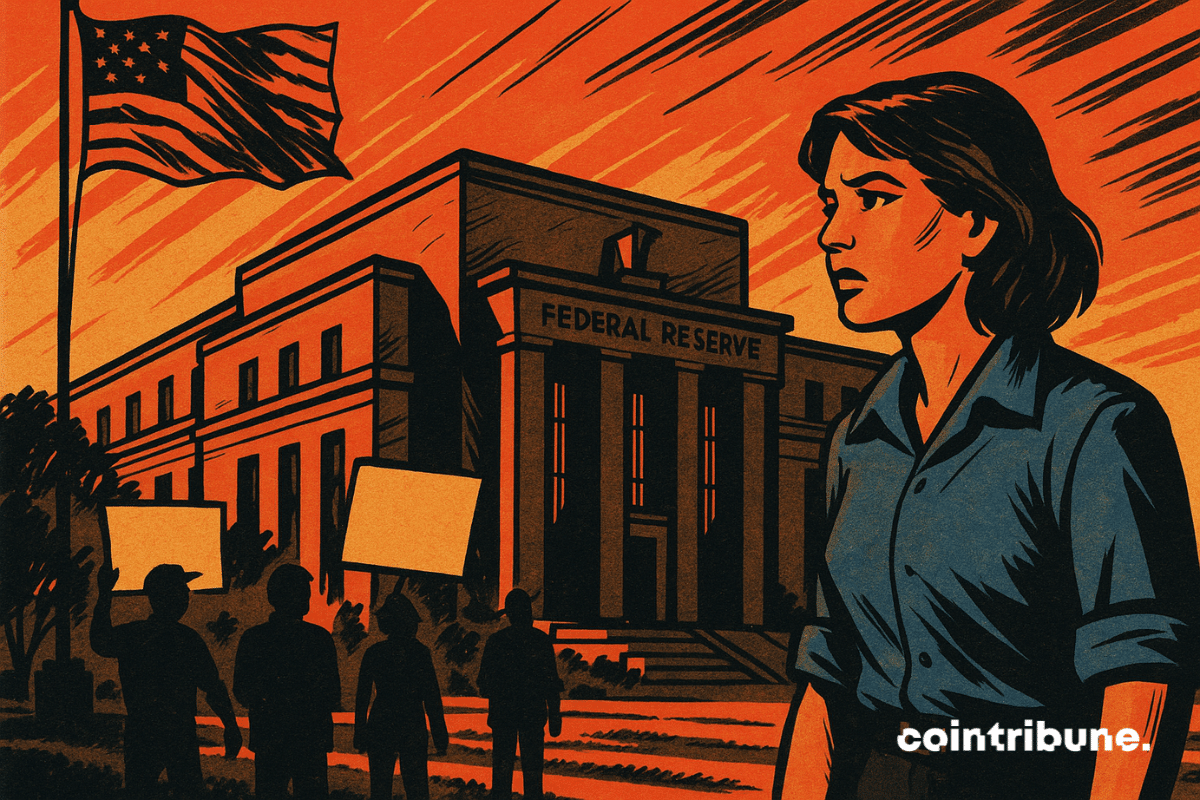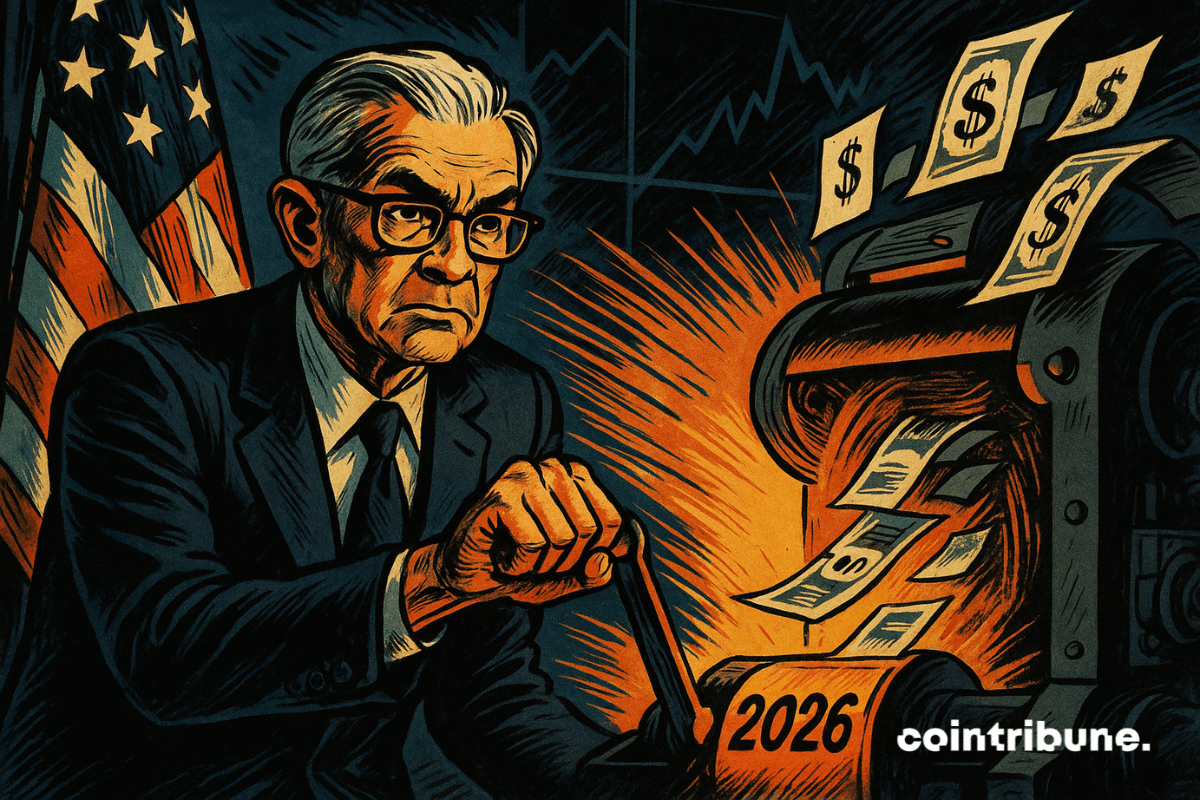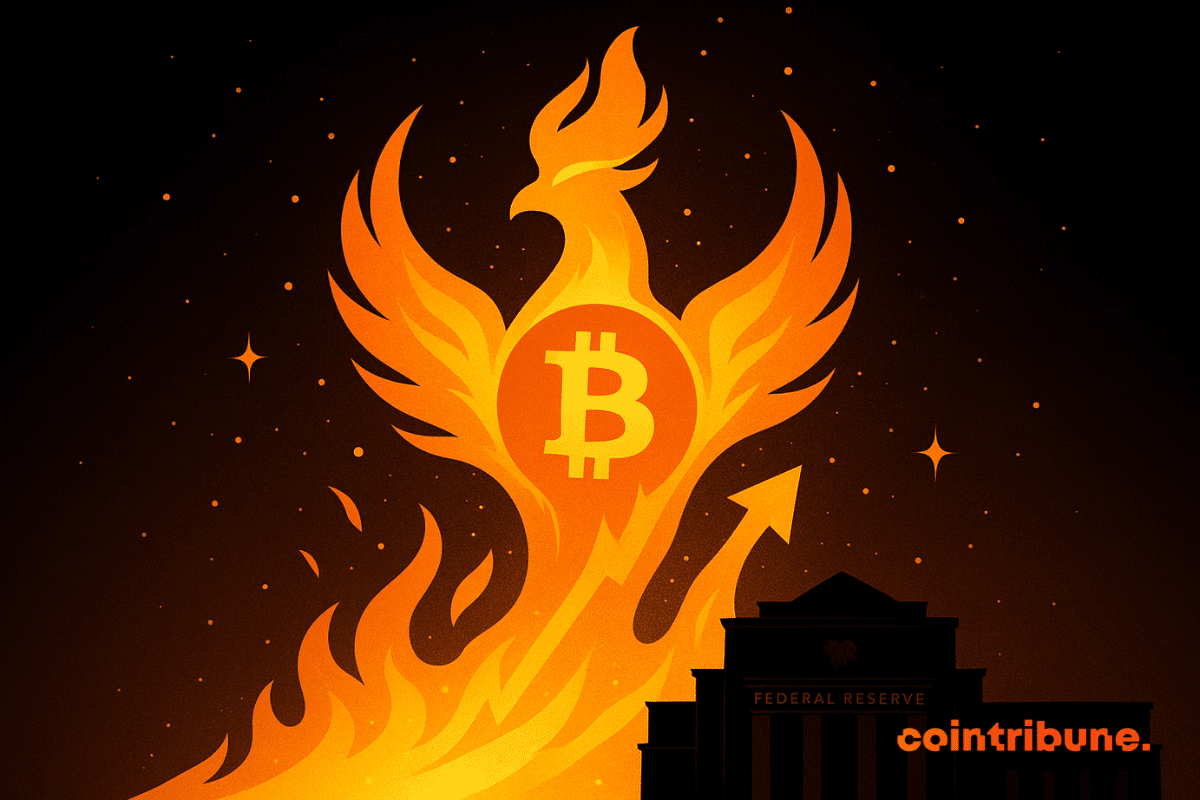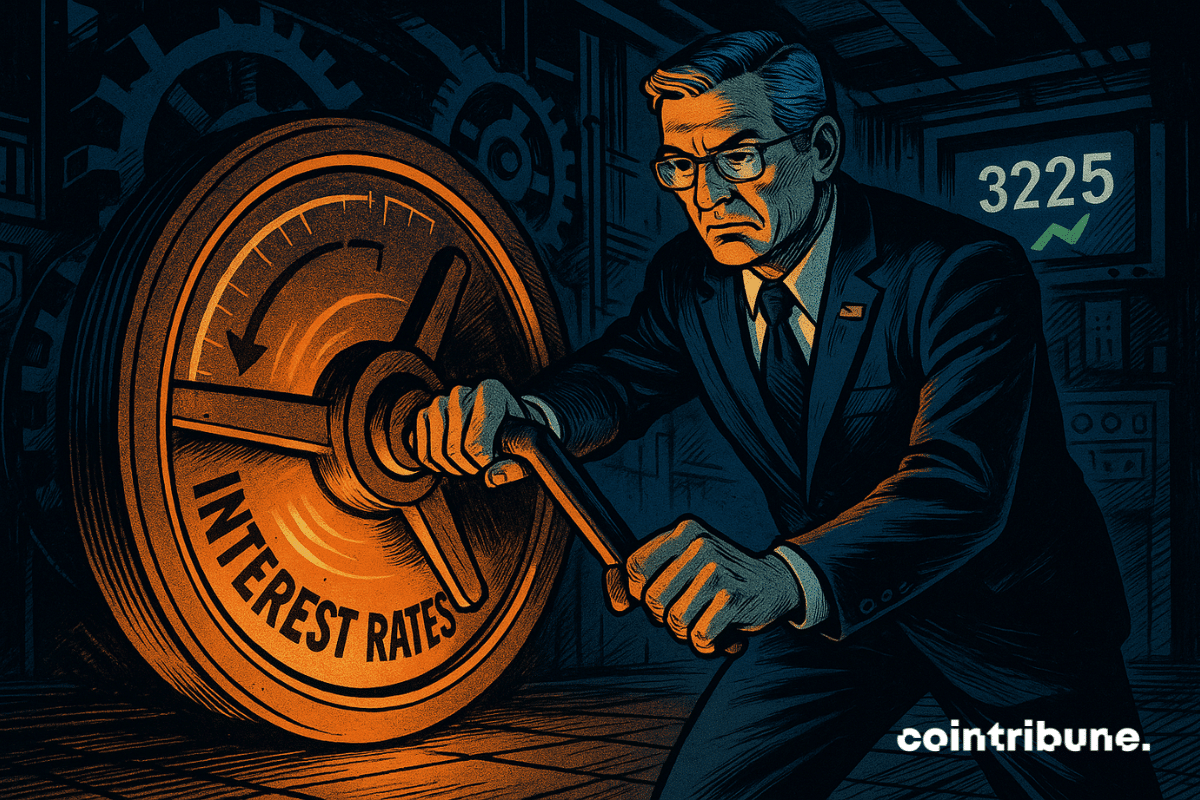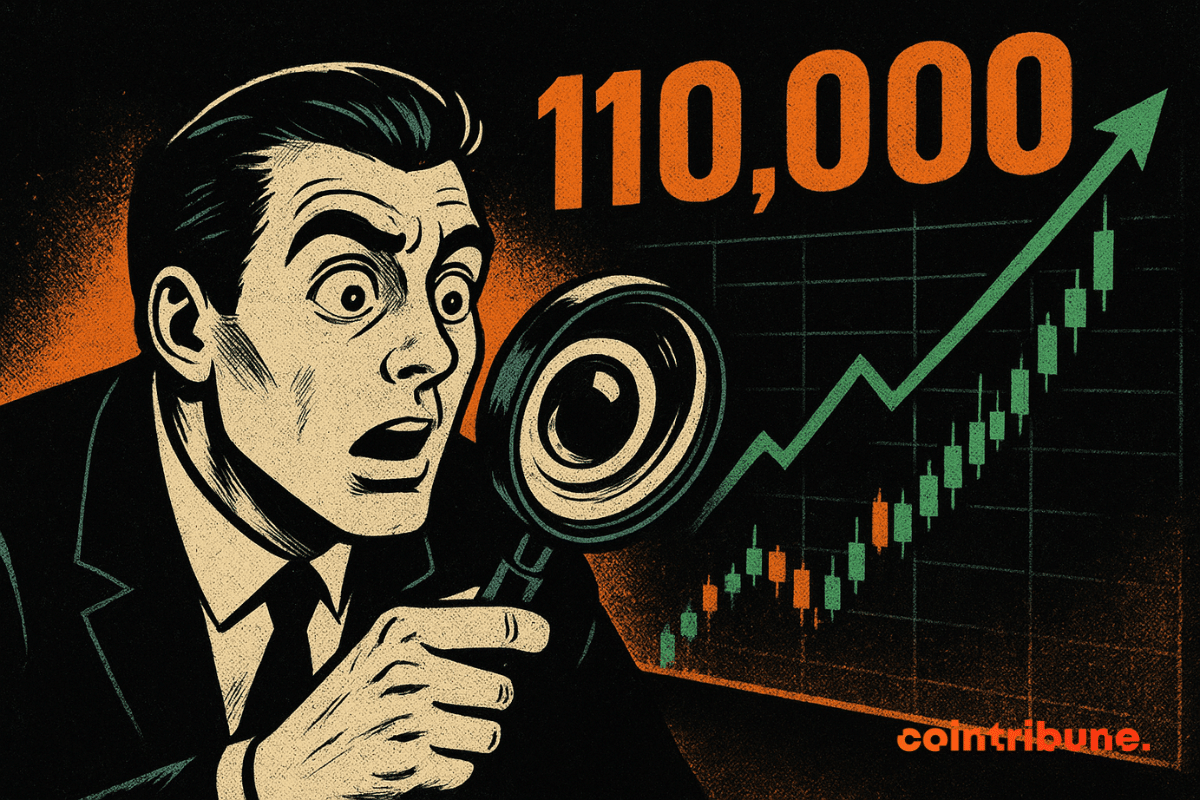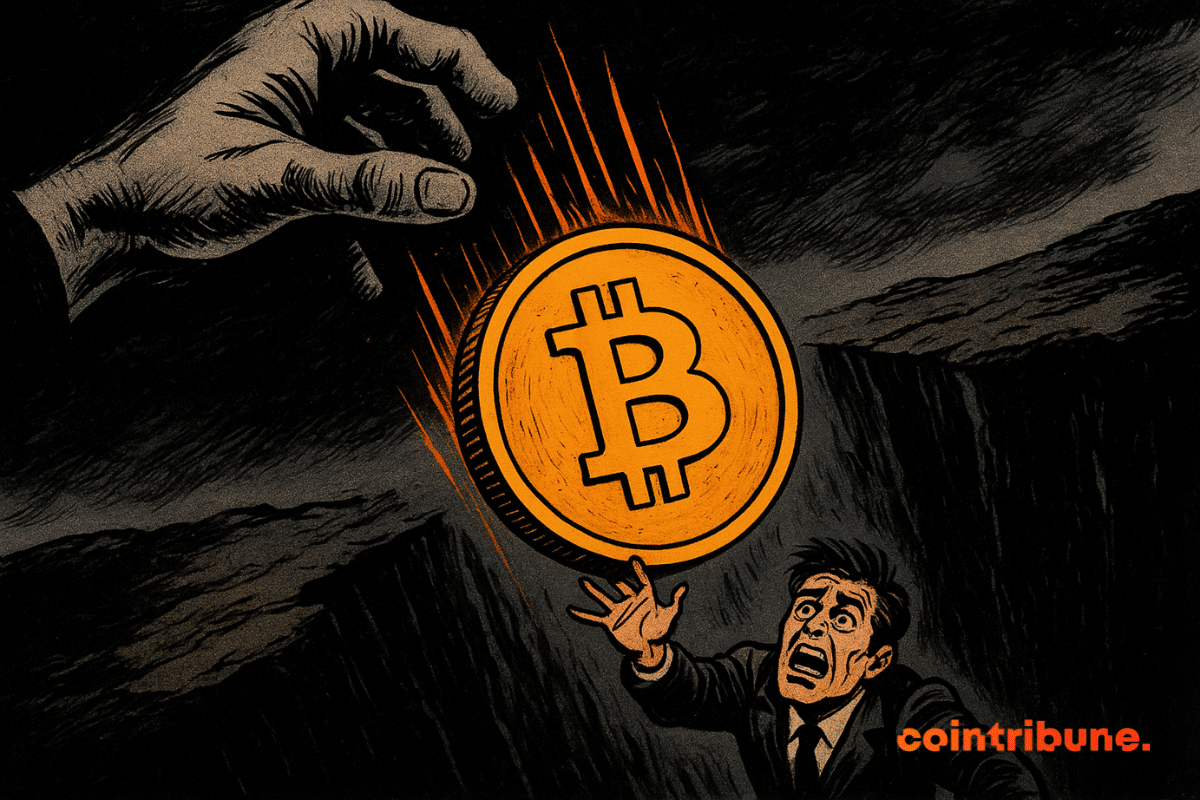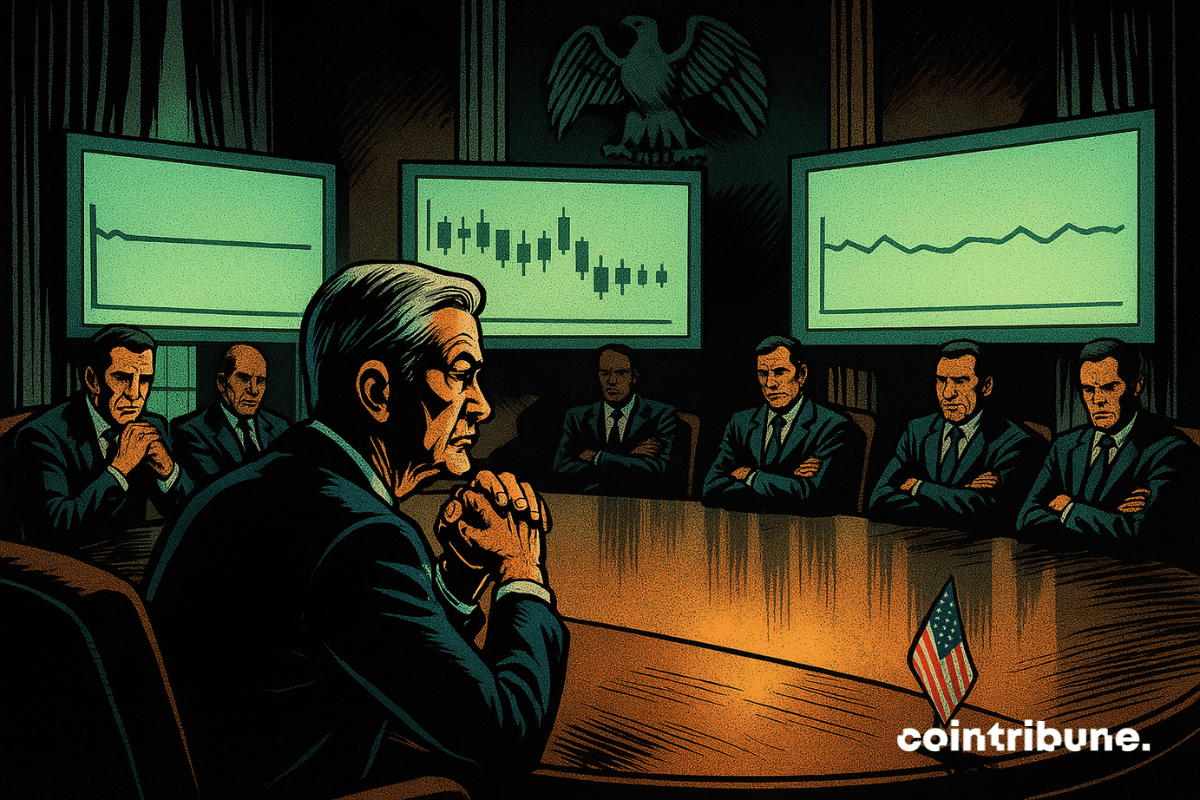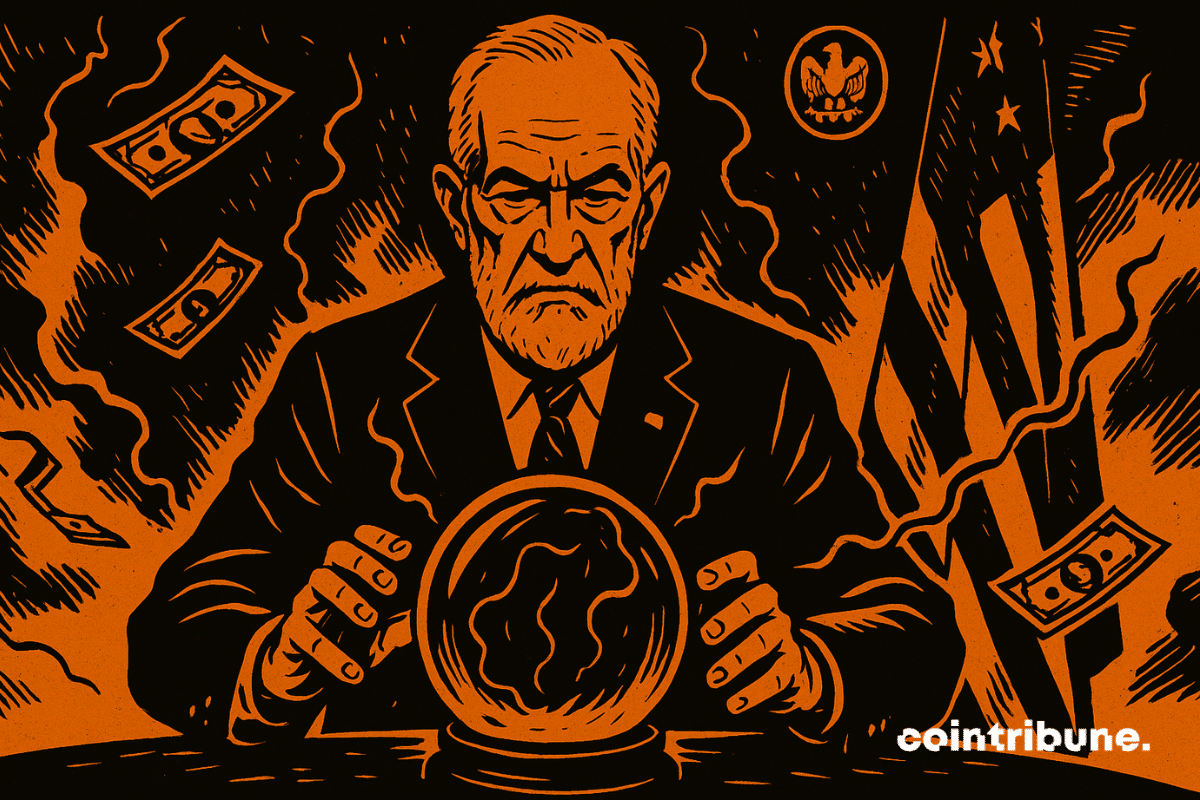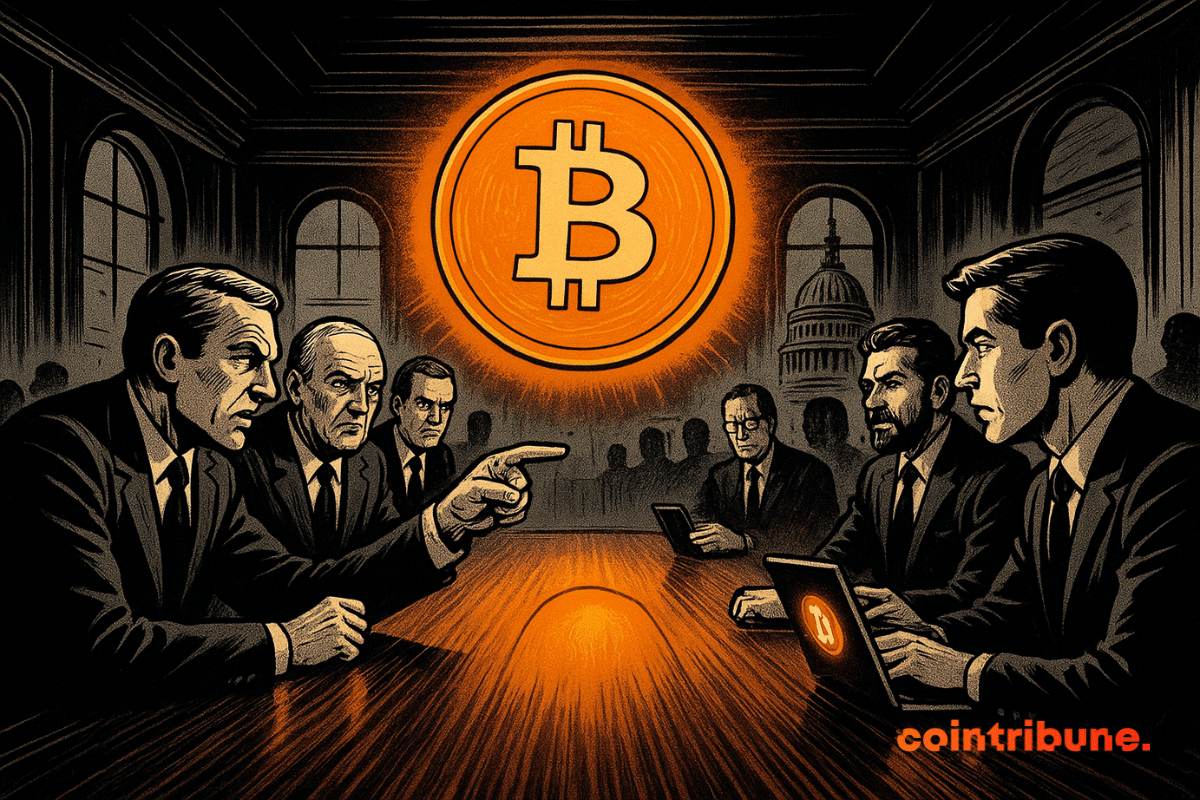Bitcoin and the broader crypto market posted modest gains over the past 24 hours, even as fresh U.S. labor data complicated expectations for near-term rate cuts. January’s jobs report showed that hiring remained firm, but growth across several sectors appeared restrained. Markets had hoped for weaker data to strengthen the case for monetary easing. Instead, traders were left facing mixed signals.
US Federal Reserve (FED)
Markets may be mispricing how sharply U.S. interest rates could fall if Kevin Warsh becomes the next chair of the Federal Reserve. A new forecast points to rapid and sizable rate cuts—an outcome that could weaken the dollar and reignite risk assets, including Bitcoin.
US Bitcoin spot ETFs saw 1.875 billion dollars leave over eight trading days as Bitcoin consolidates and the Fed holds interest rates steady, highlighting cautious investor sentiment.
While the Fed is buying time, the dollar is nosediving. And while Trump congratulates himself, bitcoin is smiling. The global economy, much less so...
Bitcoin has extended its decline following a sharp market shock in October, while traditional safe-haven assets continue to climb. Data from on-chain analytics and price movements suggest investors are withdrawing funds from crypto and shifting toward assets seen as more stable during periods of uncertainty. A falling stablecoin supply has added to concerns that a broader market recovery may take longer to materialize.
Kevin Hassett has withdrawn from consideration to lead the U.S. Fed, narrowing the field in a leadership contest increasingly shaped by political and legal pressure. President Donald Trump has made clear that he prefers Hassett to remain in his current White House role. And this stance has effectively removed him from contention and reshaped expectations around the Fed’s next chair.
While the US Supreme Court plays the role of economic arbitrator, Bitcoin itself meditates at $90,000, like a tired crypto king waiting for a judge to revive its digital crown.
December Fed minutes highlight risks of cash strains in money markets and steps officials may take to keep funding smooth.
Is bitcoin climbing? Or plunging? Between juicy injections, cautious politicians and Harvard funds, 2026 promises a well-spiced crypto saga... with guaranteed suspense on the regulation front!
Crypto debanking suffocates businesses, but Cynthia Lummis sees a glimmer of hope: the "skinny accounts" of the Fed. Could this solution finally put an end to arbitrary bank account closures? After the Strike vs JPMorgan case, the senator takes action.
Coinbase CEO Brian Armstrong has warned US lawmakers against reopening the recently passed GENIUS Act, arguing that changes could reduce competition in the stablecoin market. He accused major banks of pushing Congress to weaken the law to protect their own interests. The comments come as debate grows over how stablecoins should be regulated in the United States.
The US dollar has cycled in influence over global debt markets for decades, maintaining its central role despite shifts and challenges.
Kevin Hassett, a leading contender to chair the Federal Reserve (Fed), said the central bank would remain independent even if it faces pressure from the White House. His remarks come as financial and crypto markets watch closely for signals on interest rates and the future path of U.S. monetary policy.
Markets are watching closely as the race to lead the US Fed continues, with political pressure on interest rates building. Recent comments from Jamie Dimon and Donald Trump suggest the outcome remains uncertain, with potential consequences for monetary policy and risk assets, including crypto.
Michael Saylor’s company, Strategy, is facing growing pressure as it challenges MSCI’s plan to exclude crypto-treasury firms from major stock indexes. Strategy, which holds the world’s largest corporate Bitcoin reserve, warned that the proposal misjudges how digital-asset treasuries operate. More so, the plan risks distorting fair index standards.
Bitcoin stays over 90,000 dollars after a volatile weekend, with traders watching key levels and the Fed meeting to gauge whether momentum can return.
BitMine is drawing fresh attention as its aggressive buying spree in Ethereum continues. New on-chain activity suggests the company may be preparing another significant purchase, prompting traders to watch whether continued accumulation can steady sentiment in an uneven market. Interestingly, BitMine’s recent purchase activity comes amid broad macro pressures that remain a persistent drag on digital assets.
The latest PPI figures for September 2025 have just been released, and they are more alarming than expected. With inflation stubbornly high, the Fed finds itself backed into a corner ahead of its December meeting. A crucial decision is brewing: will it cut rates or risk an economic slowdown?
While bitcoin continues to decline, a signal from the U.S. Federal Reserve briefly reversed sentiment. Within hours, the odds of a rate cut in December nearly doubled, reigniting hopes of monetary support. In a climate of uncertainty, this reversal fuels speculation of a possible rebound. Investors, until now on the defensive, are now watching the Fed as a key factor for crisis exit.
Global cryptocurrency markets are under heavy pressure after a sharp decline in Bitcoin's value damaged sentiment across the sector. Prices are now giving back most of the gains made earlier in the year, while smaller tokens are falling to multi-year lows. Investors are reassessing risk, trading volumes are shrinking, and several analysts warn that further declines remain possible.
Bitcoin reaches $160,000 and may be ready to explode? In this article, discover why the crypto market is heating up again.
A prolonged U.S. government shutdown has created a rare information void just as financial markets seek clarity. Investors are awaiting the Federal Reserve’s next rate decision with limited insight, while lawmakers continue advancing cryptocurrency legislation despite widespread staffing delays.
After three years of balance-sheet reduction, the Federal Reserve is preparing to return as a major buyer of U.S. Treasuries early next year. Investors and analysts view the move as a signal that the central bank intends to stabilize markets and ease concerns over the government’s borrowing outlook.
Bitcoin entered the week on a strong note, climbing toward $113,000 as traders positioned for further gains ahead of a critical U.S. Federal Reserve meeting. With market sentiment buoyed by expectations of an imminent rate cut, optimism spread across crypto markets, reinforcing Bitcoin’s short-term uptrend.
The minutes of the Fed published on October 8 confirm an expected but delicate monetary shift. While the rate cut is now underway, the extent of the move by the end of the year still divides the committee. In a context of slowing employment, contained inflation, and government paralysis, this shift weighs heavily on market expectations. For crypto investors, sensitive to monetary policy signals, every Fed hesitation becomes a factor of volatility.
Bitcoin hovered around $110,000 on Sunday evening after a turbulent September, with traders weighing ETF outflows, technical support, and macroeconomic pressures. The market has entered consolidation mode, with volatility easing and traders watching for direction. With October approaching, the focus turns to whether “Uptober”—a month often associated with positive crypto momentum—will ignite the next breakout.
Bitcoin’s rally is showing signs of fatigue after a sharp sell-off pushed prices under $109,000. Long-term holders have realized billions in profits while exchange-traded fund inflows slow, raising concerns that the market may be entering a cooling phase similar to past cycle tops.
The PCE inflation figures for the month of August, published this Friday, September 27, confirm apparent stability, with progress as expected. A key indicator for the Federal Reserve, the PCE remains above the target, while American consumption continues to surprise with its strength. In a context of monetary tension, these data maintain uncertainty about the future trajectory of interest rates.
The Federal Reserve has made its decision, but without certainty. According to Jerome Powell, no interest rate adjustment will be without consequences. While several central banks have started a cycle of rate cuts, the Fed chairman warns of a strategic deadlock. In a context where inflation remains resilient and employment wavers, every decision becomes risky. A strong signal sent to the markets closely watching every word from the Fed as a decisive monetary turning point approaches.
Lawmakers from the U.S. Senate and House of Representatives recently met with crypto industry stakeholders to deliberate on key market structures and codify laws for establishing a strategic Bitcoin reserve.
